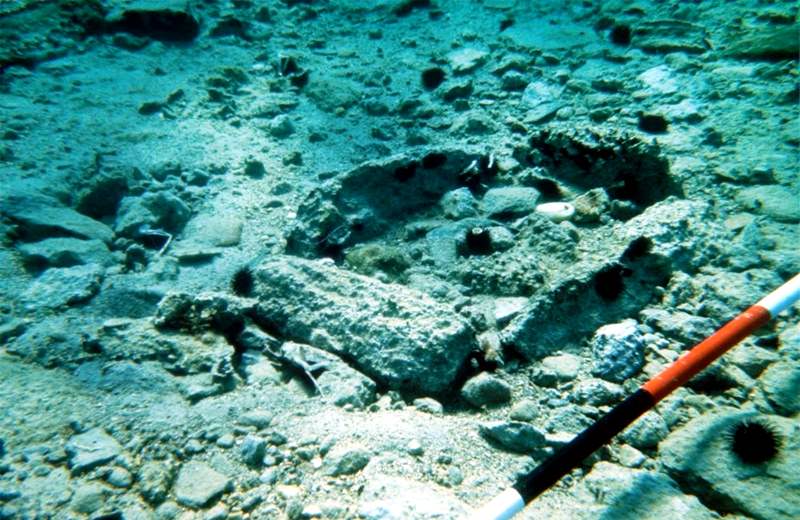The lost city below the sea has revealed fantastic secrets about the ancient world.

Aerial drone photo of the prehistoric settlement of Pavlopetri, a sunken city and archaeological site just below the surface in Peloponnese, Greece. Image Credit: Aerial-motion/Shutterstock
Underwater discoveries, be they long-lost cities, hidden artifacts, or the remains of sunken ships, capture our imaginations like little else. A great example of the mysteries that surround such discoveries is exemplified in the lost city of Pavlopetri, which archaeologists believe to be the oldest sunken city in the world.
Pavlopetri is located in the Peloponnesus region of southern Greece, just off southern Laconia, and is thought to be about 5,000 years old – dating back to before the time of Homer’s celebrated heroes. It was first identified by a geologist called Folkion Negris in 1904 but was rediscovered in 1967 by Nicholas Flemming of the Institute of Oceanography at the University of Southampton, who described the Bronze Age city as being submerged in about 3-4 meters (10-13 feet) of water. Then, in 1968, Flemming returned to the site with a group of archaeologists from the University of Cambridge to survey the extensive remains over a six-week period.
Using a grid system and hand tapes, which are used to map out perimeters of an area to be explored, the team produced a plan of the city, which they estimated to cover an area of 300 meters by 150 meters (980 feet by 490 feet) with at least 15 separate buildings, as well as courtyards, five streets, two tombs, and a minimum 37 cist graves – a small stone-built ossuary used to hold bones. They also found that the underwater city continued southward onto the island of Pavlopetri itself, where the remains of walls and other archaeological materials were found.
During their investigation, the team also recovered some artifacts from the seabed, which included pottery, blades made of obsidian and chert, and a small bronze figurine which they believed dated to around 2800-1180 BCE. The buildings of the sunken city, however, were found to be mainly from the Mycenaean period, around 1650-1180 BCE.
It was then nearly 40 years before the site at Pavlopetri received any subsequent attention. In 2009, a joint team of researchers from the Ephorate of Underwater Antiquities of the Hellenic Ministry of Culture, the Hellenic Centre for Maritime Research, and the University of Nottingham began a five-year project to explore the city in detail. The team sought to gain more insights into Pavlopetri’s history through a detailed digital underwater archaeological survey and a series of underwater excavations.
During their survey, the researchers discovered a further 9,000 square meters (97,000 square feet) of new buildings, including a large rectangular hall and structures that lined a previously hidden street. They also found stone-lined graves and a recently exposed pithos burial – large potteries used to preserve bodies before inhumation or cremation.
In addition, they discovered new ceramics that confirmed the Mycenaean habitation, as well as evidence suggesting the city had been occupied throughout the Bronze Age from around 3000 BCE up to 1100 BCE. At this time, the city would have had a population of about 500 to 2,000 people.
The events that sent Pavlopetri to the sea floor are still unknown, though some speculate that it could have been sunk by an earthquake that occurred either around 1000 BCE or 375 CE.
Given that this is the oldest sunken city to be found, which predates the time when Plato wrote his allegorical account of the lost continent of Atlantis (which never existed), some have been quick to suggest that Pavlopetri could have been Plato's inspiration for his fictional island.
- aum
-

 1
1




Recommended Comments
There are no comments to display.
Join the conversation
You can post now and register later. If you have an account, sign in now to post with your account.
Note: Your post will require moderator approval before it will be visible.